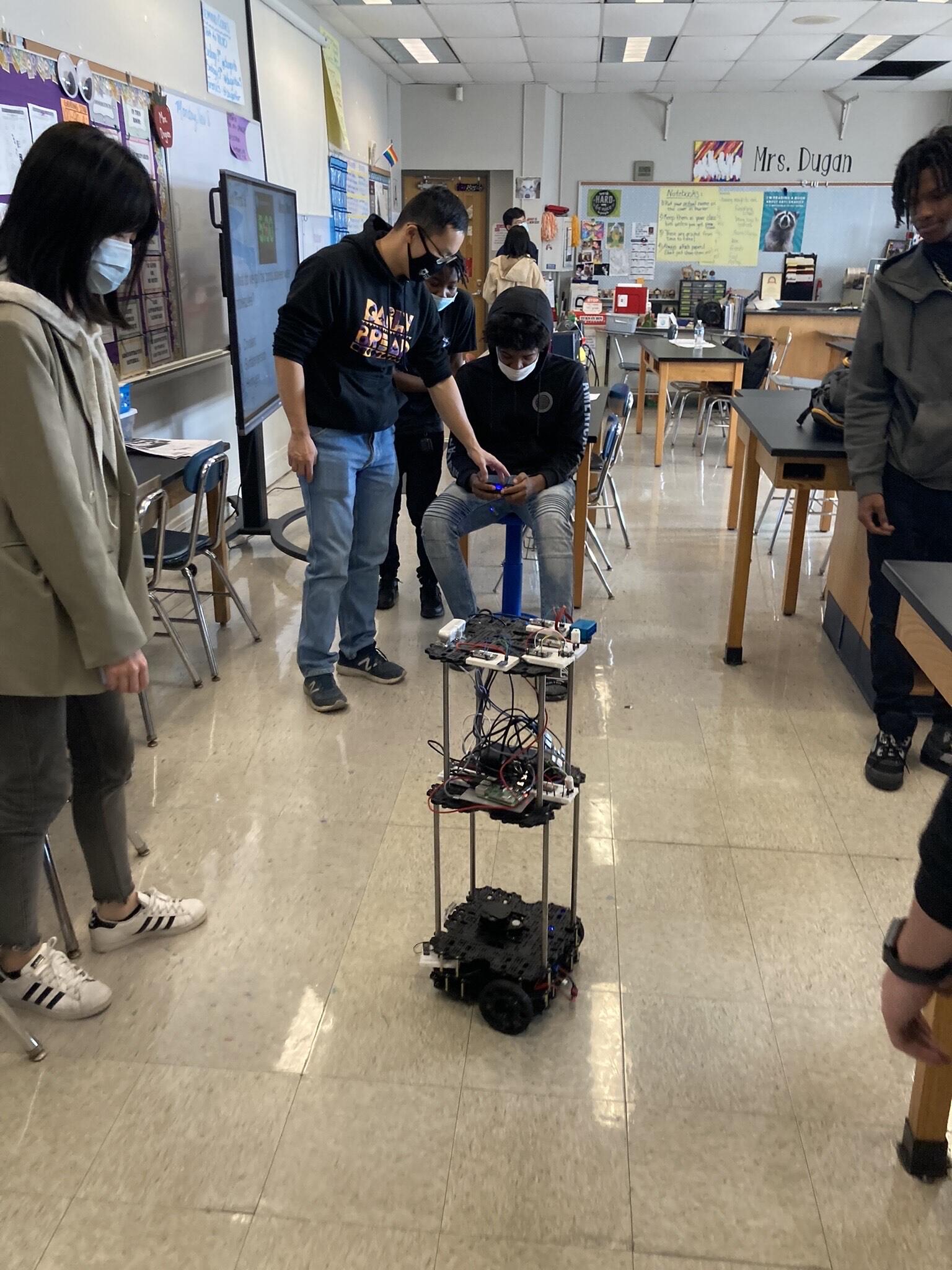PhD-BPD Dissertation Defense Presentation: Wei Liang

An automatic mobile sensing platform for indoor environmental quality assessments gets to work in a classroom. Wei Liang, PhD-BPD candidate.
Title: An Automatic Mobile Sensing Platform for Indoor Environmental Quality Assessments
Name: Wei Liang, PhD candidate in Building Performance and Diagnostics (PhD-BPD)
Date: Thursday, May 16, 2024
Time: 10:00am-12:00pm ET
Location: Intelligent Workplace (IW) Conference Room, MM 415 & Zoom
Advisory Committee:
Prof. Erica Cochran Hameen, Ph.D., Assoc. AIA, NOMA, LEED AP (Chair)
Assistant Professor
School of Architecture, Carnegie Mellon University
Prof. Vivian Loftness, FAIA, LEED AP
University Professor
School of Architecture, Carnegie Mellon University
Dr. Pingbo Tang, P.E.
Associate Professor
Department of Civil and Environmental Engineering, Carnegie Mellon University
Dr. Ji Zhang
Systems Scientist
Robotics Institute, Carnegie Mellon University
Abstract:
People spend more than 90% of their time indoors, emphasizing the need for ideal Indoor Environmental Quality (IEQ) that improves occupants' health, comfort, well-being, and productivity. However, many public buildings fail to meet the minimum IEQ standards stipulated in building codes. Addressing this issue requires measuring, monitoring, and evaluating current IEQ conditions through objective and subjective assessments. Traditional methodologies, however, present several limitations, including time-consuming processes, limited spatial representation, insufficient occupant engagement, and constrained capability to evaluate complex IEQ measures.
This thesis proposes an innovative automated mobile sensing platform to overcome these challenges by facilitating simultaneous, continuous, and autonomous evaluation of IEQ conditions. The platform incorporates advanced technologies, such as thermal infrared cameras, RGB and depth sensors, and specialized IEQ sensors for monitoring thermal comfort, indoor air quality (IAQ), lighting levels, and acoustics. Integrated with Simultaneous Localization and Mapping (SLAM) and computer vision technologies, the platform provides high-granular and efficient post-occupancy evaluations (POE). The dissertation resulted in four key deliverables:
- Updated POE protocol for measuring IEQ utilizing sensor technology incorporated into a mobile platform with mapping data technology that was field tested in eleven sites throughout Pittsburgh, PA. The updated protocol provided more detailed IEQ data with greater efficiency compared to conventional POE protocols.
- A new framework and platform designed to assess mean radiant temperature (MRT), a complex parameter that has proven challenging to measure using conventional methodologies. The framework provided a spatial presentation of MRT in built environments, applying SLAM and semantic segmentation.
- A social robot was integrated into the IEQ platform to conduct qualitative post-occupancy evaluations (POE) and collect satisfaction feedback from building occupants, enhancing engagement and accuracy. Participants showed increased interest in POEs and provided more information in their answers using social robots than traditional web-based survey.
- Development of a Gaussian Process model based on real-world measurements to enable high-resolution spatiotemporal monitoring of IEQ physical attributes, overcoming traditional stationary sensor networks' limitations.
By measuring and improving existing IEQ conditions, the proposed mobile sensing platform aims to enhance occupant comfort, health, and performance, ultimately enabling stakeholders to make informed decisions that reduce energy costs and contribute to a safer, healthier, and more comfortable indoor environment.